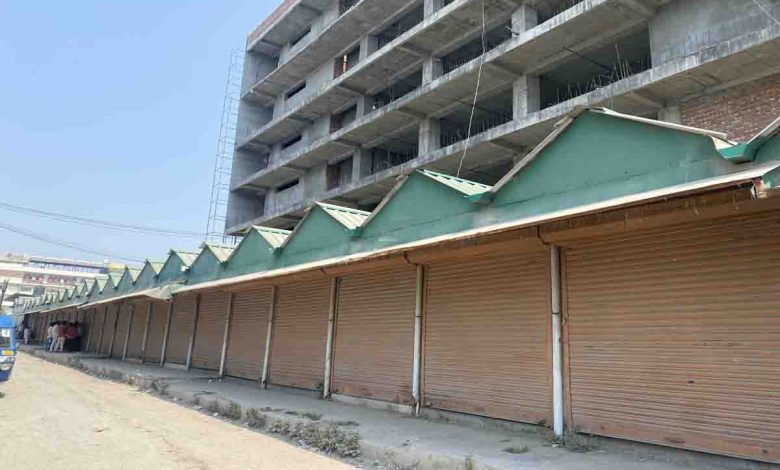Decade after relocation, New Tibetan Market shopkeepers struggle to survive

Saturday, 16 April 2022 | Tenzin Norbu | Dehradun
For some years, the businessmen of New Tibetan Market near Rispanabridge have been struggling to create a sustainable market. Having incurred losses almost every year, the shopkeepers have been finding it hard to make ends meet. While some shop-owners are still hopeful for the revival of the market, others just seem to have given up.
About a decade has passed by since the inauguration of the New Tibetan Market near the Rispanabridge. A total of 28 stores were made available by the Municipal Corporation of Dehradun for 22 Tibetan shopkeepers whose shops at the old Tibetan Market were taken down to facilitate road expansion near the Parade Ground. There were six others whose stores were demolished for some other reasons.
“With losses almost every year, the market here has not been very kind to us. A combination of different reasons including the location, personal problems of the shopkeepers and the recent Covid pandemic are all major factors for our downfall,” says Chime Dorje, a shopkeeper at the New Tibetan Market.
“We came here 10 years ago and we were really unfortunate when our shops were taken down. Business there at the old Tibetan Market was good enough. However, from the time we have been relocated here we have been suffering losses consistently,” he added. He further said that trucks and other commercial vehicles frequenting the area of the market have resulted in littering and space being used as a parking place. But irrespective of their condition, Dorje averred that almost everyone in the market has been paying their monthly rent consistently and in advance.
Tenzin Panjor, another shopkeeper further elaborated on the main reasons for the market not flourishing. “While the location and the environment of the market are major contributing factors for our losses, one of the main reasons the market has not been doing well is also the inconsistency of our shopkeepers,” he says.
Despite the losses, shopkeepers like Panjor go to work every day with the hope of making the market bloom to some extent. According to him, with only 28 stores, even if half a dozen people refrain from opening their stores, the market looks empty and customers choose not to enter. This he says, leads to the further downfall of the market.
It now remains to be seen whether the Tibetan shopkeepers will be able to revive their fortunes amidst the situation resulting from existing and other factors including a new commercial complex coming up in the locality.






